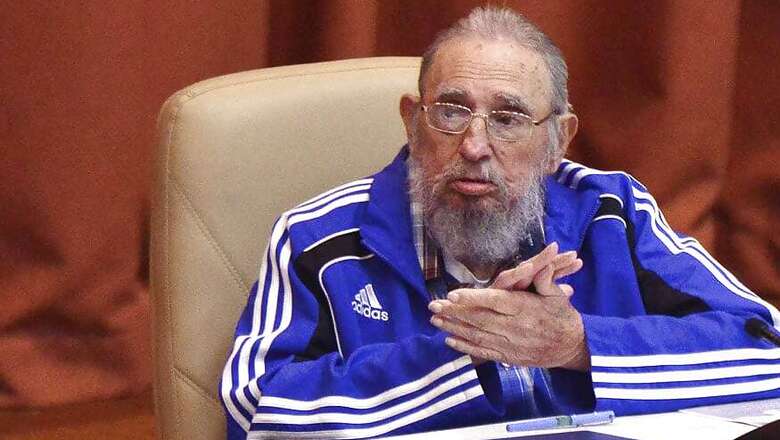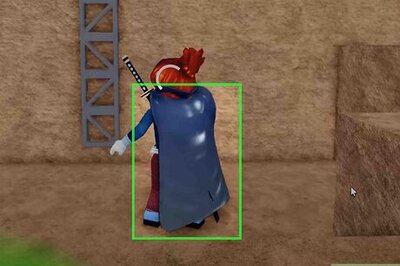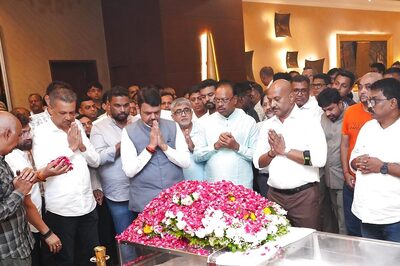
views
Havana: Cuban revolutionary leader Fidel Castro has delivered a valedictory speech to the Communist Party that he put in power a half-century ago, telling party members he is nearing the end of his life and exhorting them to help his ideas survive.
"I'll be 90 years old soon," Castro said in his most extensive public appearance in years. "Soon I'll be like all the others. The time will come for all of us, but the ideas of the Cuban Communists will remain as proof on this planet that if they are worked at with fervor and dignity, they can produce the material and cultural goods that human beings need, and we need to fight without a truce to obtain them."
Castro spoke as the government announced that his brother Raul will retain the Cuban Communist Party's highest post alongside his hardline second-in-command.
That announcement and Fidel Castro's speech together delivered a resounding message that the island's revolutionary generation will remain in control even as its members age and die, relations with the US are normalized, and popular dissatisfaction grows over the country's economic performance.
Fifty-five years after Fidel Castro declared that Cuba's revolution was socialist and began installing a single-party system and centrally planned economy, the Cuban government is battling a deep crisis of credibility.
With no memory of the revolution's heady first decades, younger Cubans complain bitterly about low state salaries of about USD 25 a month that leave them struggling to afford food and other staple goods.
Cuba's creaky state-run media and cultural institutions compete with flashy foreign programming shared online and on memory drives passed hand-to-hand. Emigration to the United States and other countries has soared to one of its highest points since the revolution.
Limited openings to private enterprise have stalled, and the government describes capitalism as a threat even as it appears unable to increase productivity in Cuba's inefficient, theft-plagued networks of state-run enterprises.
The ideological gulf between government and people widened in March when President Barack Obama became the first US leader to visit Cuba in nearly 90 years and delivered a widely praised speech live on state television urging Cubans to forget the history of hostility between the US and Cuba and move toward a new era of normal diplomatic and economic relations.
The Cuban government offered little unified response until the Communist Party's Seventh Party Congress began Saturday, and one high-ranking official after another warned that the US was still an enemy that wants to take control of Cuba. They said Obama's trip represented an ideological "attack."
That defensive stance was reinforced on Tuesday as the congress ended and the government said Raul Castro, 84, would remain the party's first secretary and Jose Ramon Machado Ventura would hold the post of second secretary for at least part of a second five-year term.

















Comments
0 comment